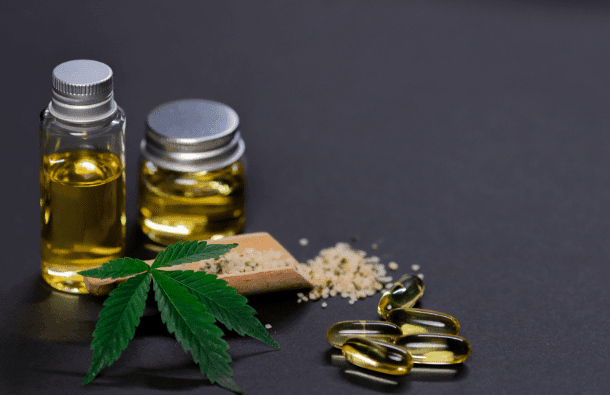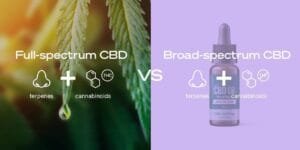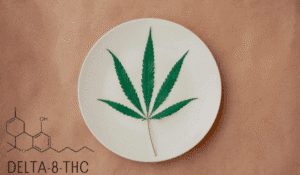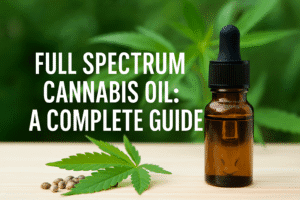Cannabis markets offer two oil products – hemp and CBD oil, which have widespread confusion about their differences.
How often do you find yourself asking, Is hemp oil the same as CBD oil?
Scientifically and conventionally, there are fundamental distinctions between hemp oil and CBD.
What are those, you ask?
That’s what this article is about. Here, we dive deep into a CBD oil vs hemp oil comparison, so you can make informed purchasing decisions and achieve desired health outcomes.
Sections
ToggleWhat Is Hemp Oil?
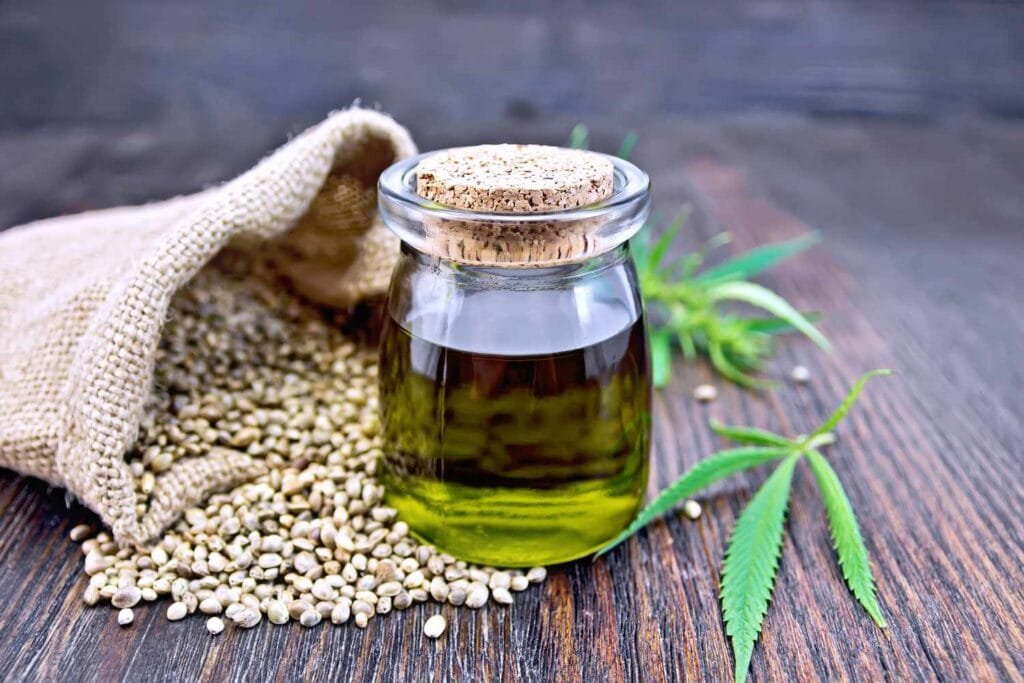
Hemp oil (commonly called hemp seed oil) is extracted from the seeds of the hemp plant (Cannabis sativa). It contains no significant CBD or THC. Hemp oil is primarily a nutritional supplement rich in essential fatty acids, proteins, and vitamins. It is essentially a carrier oil with excellent nutritional properties. However, it lacks cannabinoids like CBD, which results in low therapeutic effects.
What Is CBD Oil?
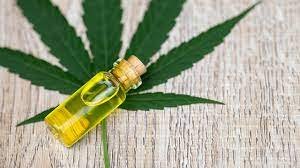
CBD oil, unlike hemp seed oil, is extracted from the flowers, leaves, and stalks of the hemp plant. It contains concentrated amounts of cannabidiol (CBD) in addition to other beneficial cannabinoids. CBD oil’s high cannabidiol concentration gives it therapeutic properties. Its cannabinoids can interact with the body’s endocannabinoid system. To produce CBD oil, specialized extraction methods are used to concentrate the active compounds from plant material rather than just pressing seeds.
Hemp Oil vs CBD Oil: Key Differences at a Glance
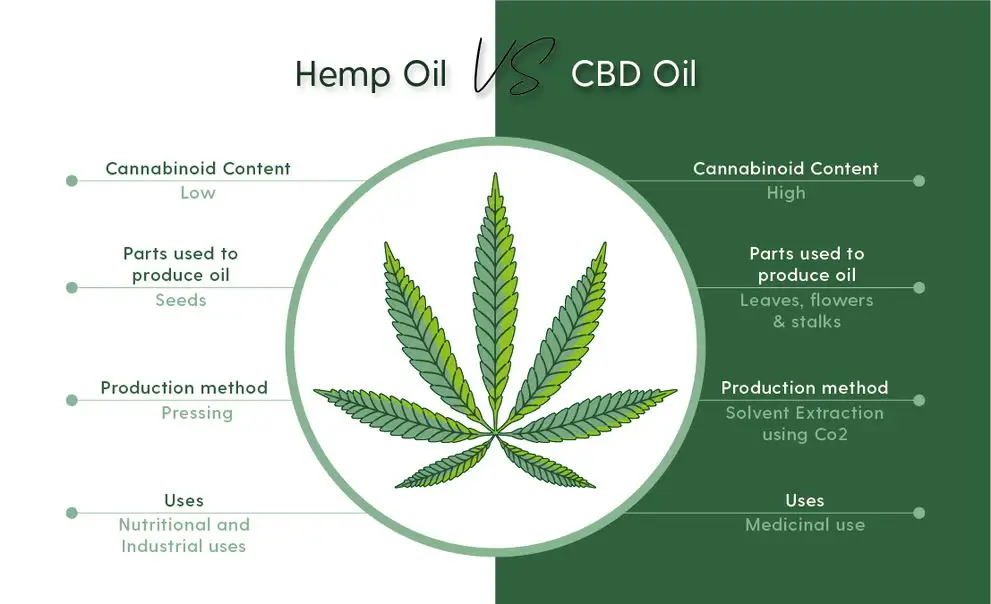
Feature | Hemp Oil (Hemp Seed Oil) | CBD Oil |
Source | Hemp seeds only | Hemp flowers, leaves, and stalks |
CBD Content | 0% (no significant CBD) | 5-30% or higher CBD concentration |
THC Content | 0% (no THC) | Less than 0.3% (legal hemp-derived) |
Extraction Method | Cold pressing of seeds | CO₂, ethanol, or solvent extraction |
Primary Nutrients/Compounds | Omega-3, Omega-6, proteins, vitamins | CBD, other cannabinoids, terpenes |
Uses | Nutritional supplement, cooking, skincare | Therapeutic/wellness applications |
Psychoactive Effects | None | None (non-psychoactive) |
Legal Status | Legal worldwide as food product | Legal in many areas, varies by jurisdiction |
Extraction Methods and Composition
To better understand the hemp oil vs CBD difference, understanding extraction methods is essential. While hemp oil is extracted by a simple method of pressing hemp seeds using a manual press, CBD oil is extracted using more complex methods.
CO2 Extraction
CO2 extraction uses pressurized carbon dioxide to extract CBD and other cannabinoids from hemp plant material. This method uses supercritical CO2 to precisely control cannabinoid profiles, producing high-quality CBD oil.
Ethanol Extraction
The ethanol extraction method uses food-grade alcohol to strip cannabinoids from hemp plant material. Ethanol extraction retains more terpenes, creating full-spectrum CBD oils with additional plant compounds.
Benefits of Hemp Oil
Hemp oil, as a natural supplement, offers several health benefits:
1. Heart Health
With a high amount of omega-3 to omega-6 fatty acids, hemp oil supports cardiovascular health and reduces inflammation in blood vessels.
2. Skin Nourishment
The essential fatty acids in hemp oil provide deep moisturization, nourish skin, and help with skin conditions like eczema and dermatitis.
3. Nutritional Boost
Hemp oil can be an excellent source of complete protein, essential amino acids, vitamins E and B, and important minerals.
4. Anti-Inflammatory
Hemp oil can help reduce systemic inflammation and support overall immune system function.
Benefits of CBD Oil
CBD oil offers more therapeutic benefits, including:
1. Pain Relief
CBD oil interacts with the endocannabinoid system, which can help reduce pain perception and inflammation.
2. Reduces Anxiety & Stress
CBD helps regulate serotonin receptors and reduce anxiety levels, offering a natural alternative for stress management and mood regulation.
3. Better Sleep
CBD oil interacting with the endocannabinoid system can improve sleep quality by addressing issues that interfere with restful sleep patterns.
4. Neuroprotective Properties
Research suggests CBD may offer neuroprotective benefits and could potentially help with neurological conditions and cognitive function protection.
Uses: When to Choose Hemp Oil vs CBD Oil
Now that you understand the difference between CBD and hemp oil, here’s how you can choose:
Choose Hemp Oil if:
- You want a nutritional supplement with natural essential fatty acids and complete proteins
- Want the nutritional benefits of cannabis without any psychoactive ingredients
- You need a carrier oil for skincare routines that provides moisturization
Choose CBD Oil if:
- You want to target specific health concerns like anxiety, pain, or sleep issues
- You are looking for a cannabinoid product that can support your endocannabinoid system and overall wellness through targeted cannabinoid supplementation
- You are looking for the therapeutic benefits of cannabis without the risk of sedation or “high”
Can you use them together?
Yes, hemp oil vs CBD oil isn’t necessarily an either-or choice. Many individuals successfully combine both oils to gain nutritional benefits from hemp seed oil while addressing specific health concerns with CBD oil.
Safety, Side Effects, and Legal Considerations
As both are cannabis derivatives, it’s important to be aware of the side effects and legal status of any product.
Potential Side Effects
- Hemp Oil: With no or minimal psychoactive cannabinoids, hemp oil is generally considered very safe with minimal side effects. A few people can experience mild digestive upset when first introducing it to their diet.
- CBD Oil: As an active cannabinoid product, CBD oil may cause mild side effects, including drowsiness, dry mouth, and changes in appetite. Consumers must be careful about interaction with certain medications, particularly blood thinners.
Legality
- Hemp oil: Hemp seed oil is legal worldwide as it’s considered a food product with no psychoactive compounds or controlled substances.
- CBD oil: The legal status of CBD oil varies by jurisdiction. In the US, it is federally legal when derived from hemp containing less than 0.3% THC.
Conclusion
Hemp oil vs CBD comparison here provides a clear outcome – both are significantly different products. CBD oil targets the endocannabinoid system for specific health concerns, while hemp oil provides nutritional support through essential fatty acids and proteins. This choice of the type of oil ultimately comes down to intended use: choose hemp seed oil for nutrition and CBD oil for targeted therapeutic benefits.

